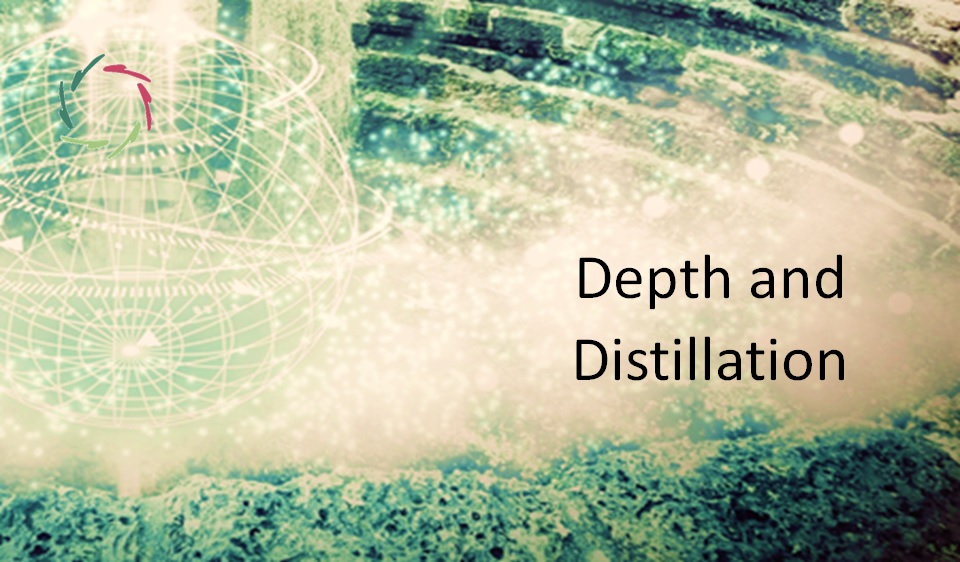Depth and Distillation

Compression of knowledge may lead to crystallization into surface-level concepts ― sometimes with a loss of depth. However, starting from broad mental-neuronal patterns, compression may lead to in-depth wisdom.
I call the latter a process of Inner Distillation
Poetry
Excellent poetry is a quintessential form of Inner Distillation. Notoriously, the poet doesn’t consciously know how this process unfolds. He knowss it on a subconceptual level.. It seems to happen autonomously — which, indeed, it does in a sense.
Conceptual thinking can thwart poetic inspiration by hindering this distillation process. It does so frequently, but not necessarily.
Dualistic/non-dualistic
These terms – as used, for instance, in Eastern philosophy – denote the same dichotomy. Dualistic is about either/or. Non-dualistic is neither one nor the other and, at the same time, both simultaneously within a conceptual void — the ‘emptiness’ being full of potential. One can recognize in this the features of subconceptual processing.
Eventually, dualism and non-dualism are orthogonal — principally independent. Both can be present, and both can be absent at any moment.
Compression in dualism
One may call the result ‘knowledge.’ This possibly leads to more dualism — also if an A.I. is the active agent.
Of course, by making efficiently clear what can be clarified, more possibilities and room may become available for the poetic or dualistic side. In this case, the meaningfulness is an indirect one. Knowledge is power that can be used for good or bad. Much knowledge without wisdom is challenging.
Thus, super-A.I. can go to super good or bad.
Compression in non-dualism (Inner Distillation)
What gets compressed here are very broadly distributed mental-neuronal patterns. They get compressed with little loss of essential meaningfulness. One may call the result ‘wisdom.’ One may call it ‘Compassion.’ One may call it ‘art.’ One may call it ‘profound insight.’
The way humans reach this is frequently something akin to meditation, either formally on a cushion or, for instance, a scientist who makes a stroll and finds inspiration for solving a deep problem by an original bringing together of surprising associations.
Distillation of mental-neuronal patterns (MNPs)
At this level, the process becomes easy to grasp and explain. Many MNPs mutually overlap on different levels of distribution. For each MNP, one may think of a ‘ecore of overlap’ that is made up of a number of MNPs directly or indirectly overlapping other MNPs. The more that cumulated relevant overlap can be captured by some insight – that is itself also an MNP – the higher the score and the deeper it may feel to be.
Getting to profound insights is then akin to a distillation process. What comes out is something as pure as it gets.
This is spirituality in an excellent way.


